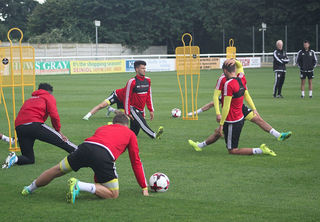Sport and Competition
The Power of Routines in Sport
When you use routines in your sport, you set yourself up for success.
Posted March 7, 2018

In my tenth of 12 vlog segments devoted to athletes and coaches, I explain why every world-class and professional athlete I have ever worked with or known uses routines to maximally prepare themselves for success in both training and competitions. I also explain why routines are such a valuable tool:
- Totally prepare you to perform your best.
- Train your mind and body to react in the same way regardless of the importance of the competition.
- Create consistency, familiarity, predictability, control, and comfort when so much of competitive sports is not any of those things.
- There is no single routine that is ideal for every athlete. You need to experiment to find out what works best for you.
A key point I want to emphasize is that, like any form of sport training, routines will only be beneficial if you use them consistently. This means making a commitment to developing and using routines in your training/practice efforts and your pre-competitive preparations. Additionally, you should approach your routines the same way you do other aspects of sport training. For example, what makes your conditioning program effective is that it’s structured and consistent. You should also establish routines that are structured and consistent. This effort means using routines in before every training session and every competition.
Your routines should include everything you need to have ready in training and competitions to perform your best. Key contributors to a routine include healthy fueling, physical warm-up, checking your gear, technical warm-up, review of competitive tactics, and, of course, mental warm-up (e.g., positive self-talk, mental imagery, focus words) to get you totally ready mentally to perform at your highest level.


